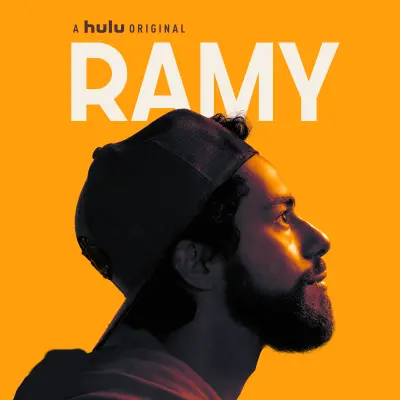Hulu's Ramy is an autobiographical, lyrical landmark -- representation politics at its finest
-

"Ramy is an earnest exploration of Muslim identity that at times runs toward saccharine; one gets the impression that the show, mindful that the mere act of being Muslim in America is provocative, has carefully neutered itself of anger," says Sonia Saraiya of Ramy Youssef's semi-autobiographical Hulu dramedy. "But Ramy makes up for this with an unflinching, transgressive portrait of American Islam, one that holds both its traditions and its deviations from tradition in the same embrace." Saraiya adds: "The show draws you in so quickly, so tightly, that you feel almost too close—to this woman’s stifled eroticism, to this man’s idea of hygiene, to the finicky ministrations of our corporeal selves, especially within the context of such a scrutinized and scapegoated religion. But it’s an intoxicating intimacy, too—a foray, it feels, into unexplored territory. Ramy has already been compared to Aziz Ansari and Alan Yang’s Master of None, in which Ansari stars as Dev, an Indian-American-Muslim man struggling, at times, to unburden himself from the yoke of tradition. It’s a foolish comparison, though. Master of None is a quest for beauty; Ramy writhes with the need for meaning, purpose, and answers. Stylistically, Ramy shares much more DNA with Donald Glover’s surreal chronicle of the black experience, Atlanta, and another, older FX comedy—Louie, the groundbreaking half-hour from now-disgraced comic Louis CK."
ALSO:
- Ramy isn’t especially trying to appeal to everyone: "Instead, it digs into the specificity of its star’s perspective and experience to deliver something much more unique — and that, more than anything, is what makes it so worthwhile"
- Ramy is proof why better representation makes for better TV: "It can tell deeper stories because no character has to stand in for an entire culture"
- Ramy is so good because it's so personal -- and not telling a universal story of the American Muslim experience
- You’re so in awe of how Ramy Youssef has given the world the Great Muslim-American TV Show that you might miss the fact that it’s a great TV show
- Ramy Youssef shows confidence and clarity of vision that puts Ramy alongside the auteurish achievements of Louie, Master of None and Atlanta
- "He’s just a noncommittal slacker": The great thing is Ramy isn't just another showbiz-based point-of-view show like Louie, Crashing, Master of None and Atlanta
- Ramy feels fresh when it avoids the "semi-autobiographical material" playbook used by Crashing, Broad City, Fleabag, Insecure, Girls and many other shows
- Bursting with discovery, Ramy resembles some of this decade’s best TV with an extraordinary cast
- It’s almost a shame that Hulu is dropping Ramy's entire first season on one day -- there's so much to dig into within each episode
- Ramy has a seriously good soundtrack
- Ramy Youssef wanted to avoid ethnic show tropes: “The awareness that there was nothing like it was what pushed me to make it even more unique, because there’s never been a Muslim family show. I didn’t want to give the Muslim family the same treatment that is given to the Asian family show and the Hispanic family show. There are almost kind of tropes of how an immigrant family is treated on television, and I felt like, ‘No, this needs to go even further than that.’”
- Youssef didn't want his portrayal to represent every Muslim experience: “I didn’t want to claim at any point that I was speaking for anyone other than myself"
- Youssef had to educate his casting directors, who would confuse Arabs for Iranians and South Asians
TOPICS: Ramy, Hulu, Ramy Youssef, Muslim Americans and TV
